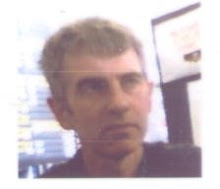Reactor No.4 at Chernobyl exploded on the 26th April, 1986. It caused a cloud of radiation that covered most of the northern hemisphere, carrying 5.2 million terabequerels of radioactive substances. On the first day of the reactor's failure, the radiation dose was estimated by experts at 20 million millisieverts.

Designed in the Soviet Union in 1960, the Chernobyl Nuclear Power Plant grew to become the biggest atomic power station. As a result of the explosion, an area of approximately 30 km. has been declared unfit for human habitation. The costs for the resettlement of the inhabitants from the affected area and the payments for medical treatment have been estimated at hundreds of billions of dollars.
The workers that participated in the shut down of the reactor and the decontamination of the immediate area were promised generous benefits for their highly dangerous work. The Chernobyl Union of Ukraine has estimated and published a list of victims of the disaster, amounting to almost 734,000 people. Livestock was also affected, and radiation traces have been found as far away as Scandinavia and Great Britain.
On the eve of the 25th anniversary of the disaster; Kiev, the capital of Ukraine, has hosted mass protests. Amongst these were 600,000 people who were the so-called "liquidators" from all over the former Soviet Union, sent to Chernobyl to shut down the reactor and clean up the area.
Approximately 2,000 people were involved in the shutting down of the Chernobyl reactor, previously regarded as the worst nuclear catastrophe in the world. The Soviet authorities were accused by the western media of concealment, deliberately blocking the free distribution of information on the accident.
Some of these protesters have seen their monthly pensions reduced from the equivalent of 200$ to 150$. This is just sufficient to buy the necessary medicines and food. The Ukrainian government has declared that it hasn't the money to pay the original sums promised to the tens of thousands involved in the aftermath of the accident. In Ukraine, about 4 million people have been affected by radiation, and more than 150.000 have had to be resettled. Approximately 5 million people have been affected by radiation in Ukraine, Belarus and Russia.

Those who were caught in the fallout from Chernobyl have really suffered, and are now having their income from the certificates of liquidators cut. However, Alla Pugacheva, the Soviet and Russian singer and composer, visited the Chernobyl district once, avoiding the vicinity of the reactor, and was given a certificate of the liquidator and the financial support the genuine victims had.
Mikhail Gorbachev, the former president of the Soviet Union during the Chernobyl crisis, now heads the International Green Cross. He has used the 25th anniversary of the disaster to declare that the nuclear power industry is still not ready to deal with accidents or to work against climate change. The Soviet Authorities were afraid of panic, so did not cancel the mass demonstrations of May 1st. 1986. an action they later regretted, but by May 1st there was still no clear picture of what had happened. The facts were probably being concealed by officials afraid of being held responsible for any negative outcome by their superiors. The situation gradually became clearer through the scientists, engineers, military, helicopter pilots, miners and the personnel of the Chernobyl station.
The shell that Soviet workers hastily erected to enclose the reactor has since cracked, releasing traces of radiation, and an international effort to build and place a new containment structure may soon begin construction. The $2 billion - plus shield will include systems that remove heat from the damaged reactor and sensors that measure the new structure's integrity. The design is finished, but the project remains under funded. European Union nations so far have promised to cover half the cost: Russia, which controlled the Ukraine as part of the Soviet Union at the time of the disaster, has pledged just 1 percent.
By Victor Yanulevich

No comments:
Post a Comment